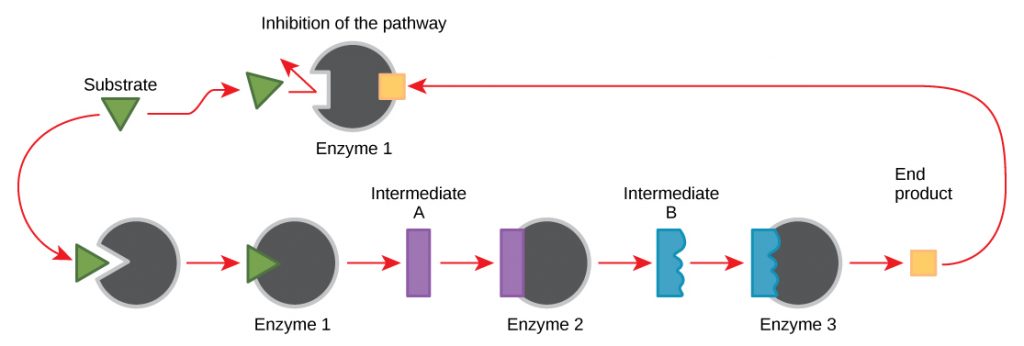8.4 Feedback Inhibition of Metabolic Pathways
Feedback Inhibition
Molecules can regulate enzyme function in many ways. However, a major question remains: What are these molecules and from where do they come? Some are cofactors and coenzymes, ions, and organic molecules, as you have learned. What other molecules in the cell provide enzymatic regulation, such as allosteric modulation, and competitive and noncompetitive inhibition? The answer is that a wide variety of molecules can perform these roles. Some include drugs, toxins, and poisons from the environment. Perhaps the most relevant sources of enzyme regulatory molecules are cellular metabolic reaction products themselves. final end product of a particular biochemical pathway to inhibit an enzyme that functions early in that same biochemical pathway, typically the first enzyme that is unique to that pathway. Hence, the cell responds to the abundance of specific products by slowing down production during anabolic or catabolic reactions. This is called feedback inhibition.

Producing both amino acids and nucleotides is controlled through feedback inhibition. Additionally, ATP is an allosteric regulator of some of the enzymes involved in sugar’s catabolic breakdown, the process that produces ATP. In this way, when ATP is abundant, the cell can prevent its further production. If too much ATP were present in a cell, much of it would go to waste.
when an enzyme is inhibited by the end product of a pathway in which it is involved

